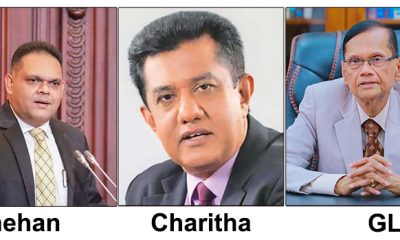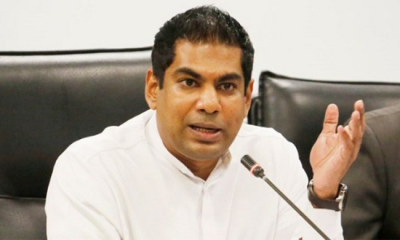Opinion
Observations on Electricity Bill
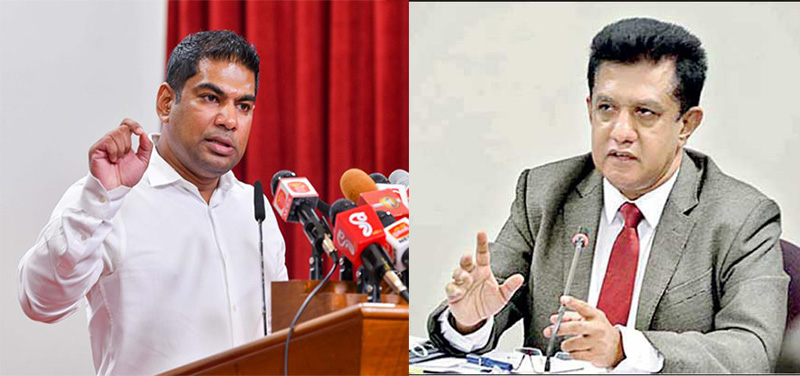
Prof. Charitha Herath’s letter to Minister of Power and Energy Kanchana Wijesekera
Having reviewed the recently published Sri Lanka Electricity Bill in the gazette, I wish to express my appreciation for the improvements made compared to previous drafts. It’s evident that considerable effort has been invested in refining this version of the bill, making it notably more comprehensive and effective.
Nevertheless, I have identified some fundamental issues in this draft as well. I believe that the forthcoming discussions on this draft will provide an opportunity to address these concerns. Given that the drafting committee appears to have finalized their positions on the matter, I suggest that the proposed changes to the bill should be subjected to scrutiny first in the Supreme Court and subsequently in the Parliament. I anticipate that certain comments and issues regarding the bill will be raised during the legal submission to the courts and in the policymaking exercise within the Parliament.
In the meantime, I wanted to share some of the issues I’ve noticed at the forefront of the bill with you. I believe your consideration, as the incumbent Minister of Power and Energy, is crucial regarding these matters. Thus, I aim to bring these issues into the national discussion surrounding this significant legislative process.
Reforms are Needed
As many would concur, I share the belief that reforms in the Power and Energy sector are paramount. This necessity has been a focal point in policy-level discussions over the past two decades. The current regulations governing the Power Sector, established under the Ceylon Electricity Board Act No. 17 of 1969 and the Electricity Act No. 20 of 2009, have highlighted numerous lapses and legal complexities. These issues have resulted in delays and, in some cases, hindered the development within the sector.
In my view, the reform requirement mentioned above was not adequately addressed by the gazetted bill on 17/4/2024. Instead, it appears to provide excessive leeway for political actors to intervene in the regulatory mechanism of the Power sector. In essence, the proposed bill could exacerbate existing difficulties in certain areas and potentially delegate decision-making power entirely to political entities.
When examining international experiences, Power sector reforms typically unfold in three stages:
1. Unbundling and corporatization, often adopting a single buyer model.
2. Establishment of a wholesale market.
3. Establishment of a retail market.
These stages represent a structured approach to reform aimed at enhancing efficiency and promoting competition within the sector.
The overarching goal of reform experiences is to transform initially highly regulated existing markets, where the regulator decides on allowed Revenue and Returns of Investment (ROI) except Power Purchasing Agreements (PPAs). Consequently, reforms typically advance towards deregulation, wherein prices are determined through competition. This progression aims to foster greater market efficiency and encourage innovation within the sector.
The gazetted Bill, dated 18/04/2024, outlines an initial proposal for unbundling and corporatization, operating within a single buyer model. Under this framework, the National System Operator (NSO) is tasked with purchasing electricity from Generation Companies (Gencos) and subsequently selling it to Distribution Companies (Discos). Additionally, the bill aims to establish a wholesale market model, wherein prices are determined through competition between Gencos and Discos. This approach signifies a pivotal step towards fostering market efficiency and promoting competition within the sector.
Given that approximately 85% of the cost of electricity in Sri Lanka is attributed to generation, it is imperative to prioritize the establishment of competition within the generation sector. Therefore, in alignment with the overarching reform expectations, it is crucial to thoroughly examine the gazetted bill. This careful scrutiny will ensure that the proposed reforms effectively address the need for competition in the generation sector, ultimately contributing to greater efficiency and affordability in the electricity market.
Some Observations
·
In order to effectively implement new reforms in the Power sector, there are two crucial aspects to consider at a conceptual level. Firstly, it is imperative to consult and involve the main stakeholders of the industry in the proposed legal and institutional reforms. It is essential to ensure that their voices are heard and that they are actively engaged in the process, regardless of whether all stakeholders are in agreement with the Bill. Secondly, it is vital to ensure that the proposed reforms adequately address the core issues at hand. Unfortunately, it is my belief that the Government has failed to address both of these highly important issues.
· The proposed bill signifies a notable shift towards increased Politicization of the Electricity Sector. It is clear that key institutions to be established under this bill will be subject to substantial political influence. For example, following the bill’s passage, entities like the Long Term Generation Expansion Plan (LTGEP), National System Operator (NSO), Power Sector Reform Secretariat (PSRS), and certain functions of the Public Utilities Commission of Sri Lanka (PUCSL) will come under direct political control.
· The independence of successor companies and corporate good governance will no longer be maintained, as management control will now rest with the Minister in Charge.
· The Electricity Reform Act no 28 of 2002(that was not implemented due to political reasons)had proposed the establishment of an independent agency known as the “Monitoring and Advisory Committee” to spearhead the reform project. This committee was intended to have the authority to advise the Minister on the appointment and dismissal of directors of the proposed successor companies. However, the recently gazetted new Bill (17/04/2024) does not include this independent mechanism, giving the Minister the power to appoint the Board of Directors of the successor companies. Furthermore, the Minister’s consent is now required for the appointment of the CEO of NSO, as outlined in Section 10 (1)(b) & (c) of the new Bill.
· The “Long Term Power System Development Plan” is formulated by NSO and then forwarded to the Minister for assessment, followed by submission to the Cabinet for approval (as outlined in the recently gazetted Bill, Section 10 (7) (b)).
· Weakening of the Regulator, PUCSL
· The PUCSL no longer holds the power to approve the “Long Term Power System Development Plan” as it has been transferred to the cabinet of Ministers, as per the newly gazetted Bill, Section 10 (7) (b).
· According to Section 3(1)(a) of the Sri Lanka Electricity Act 2009, the PUCSL has the authority to provide advice to the government on matters within their jurisdiction. Nevertheless, the recently gazetted Bill has revoked these powers and transferred them to the National Electricity Advisory Council, which will be appointed by the Minister (new Bill, Section 3 (3)).
· According to Section 20 (2) of the Bill that was gazetted in December 2023, the Regulator is required to simply “inform the Minister” when granting licenses for generation, transmission, and distribution. However, in the recently gazetted Bill, the Regulator now needs to seek the “concurrence of the Minister” before granting licenses.
· The Bill’s Section 4 (10) includes provisions that enable the bypassing of competitive tendering through the provision of incentives to select technologies.
· Illogical Timeline – proposed approach to rescind the current Acts in 6 months without any preconditions, unveiling the Transfer Plan after the specified date, and more.
· As per the new Act, the functions currently executed by CEB will be transferred to the newly formed successor companies within a maximum duration of six months. Section 1 (2) of the Act ensures automatic appointment within this timeframe.
· The process of setting up new successor companies includes drafting detailed Memorandums and Articles of Associations, reallocating assets, liabilities, and human resources, preparing new balance sheets, creating financial models for tariff development, and finalizing the incorporation of other supporting functions. The unrealistic timeline proposed in this new Act is a significant issue.
·It’s not just the impracticality, the legality of forming companies according to a transfer plan which has not been approved and gazetted is also another serious issue.
·Electricity Pricing – guaranteeing fair returns, measures to establish private monopolies, minister directs policy guidelines to encourage specific projects/technologies, no safeguards for regional trade below domestic market prices, permitting current generation licensees to engage with distribution licensees before entering the Wholesale market.
· The increase in electricity prices is tied to the requirement for a justifiable return on investment as outlined in the recently published Bill, Section 29 (5) and (9)(a). This will cause prices to rise, with the Regulator being legally required to ensure that profits are kept at a reasonable level. In times of high inflation or interest rates, electricity prices may see an uptick. The assurance of a reasonable ROI can be accomplished through tariff policies, which are not legally mandated, giving the Regulator the ability to lower profits during tough economic times.
·Granting free access and allowing Captive Generation without comprehensive study as stipulated under Section 12 could lead to the general public being unable to access cost-effective power plants, ultimately causing prices to escalate.
· Section 30(4) permits distribution licensees to engage in power purchase agreements with generation licensees before the Wholesale Electricity Market is established. The competition between distribution licensees for access to inexpensive power plants will drive up prices.
· In the December 2023 gazetted Bill, there was a provision that prohibited the acquisition of combinations of licenses without any qualifications (Section 19 (6)). However, in the new Bill, this prohibition only applies if a company owns more than 50% of the ownership. For instance, if a company owns 49% of the National Network service provider, it can still acquire a Distribution license and shares of multiple other companies as long as its ownership remains below 50%. Additionally, with the introduction of Additional Transmission Licenses, it is possible for a few companies to have control over more than 50% of the National Grid.
· Private companies have been granted Additional Transmission Licences under the new Bill, as stated in Section 14 (2). Nevertheless, Section 10 does not grant the NSO the authority to utilize transmission lines owned by these Additional Transmission Licensees in order to ensure a consistent electricity supply.
· The new Act does not include any provisions to address monopolies, anti-competitive practices, collusion, abuses of dominant position, and merger situations that could impact competition in the Electricity Industry. Rather than enacting specific laws to combat these issues, Section 28 grants the Minister the authority to issue policy guidelines.
· Additionally, as per Section 10(13)(b), it is stipulated that the terms of Electricity trading with foreign nations must receive approval from the Cabinet of Ministers. Given that this trading has a direct impact on the sovereignty of the nation, these terms should be ratified by Parliament, especially for fundamental conditions.
· The exportation of low-cost renewable energy to other countries may result in the deprivation of citizens from accessing affordable electricity. Regional trading lacks protection against prices below the local market costs.
As mentioned earlier, stakeholders and policymakers will have limited avenues for correcting the draft bill once it has been gazetted and tabled in parliament. One option is to seek determinations from the Supreme Court, while the other is to propose amendments during the Committee Stage of the parliamentary debate. However, given the current government’s approach to passing acts in parliament, there are doubts about the feasibility of making amendments through the parliamentary process. The considerable majority power of SLPP MPs is likely to heavily influence and potentially override discussions on the issue within parliament.
I urge the Honourable Minister to carefully consider the observations outlined above and take necessary steps to amend the bill accordingly from the government side. Furthermore, I strongly encourage the Honourable Minister to convey these observations to your advisory council for their expert input and recommendations in rectifying the identified issues. This proactive approach will ensure that the bill is revised comprehensively to address concerns and uphold the principles of fairness and effectiveness in the reform process.
Lastly, I would like to reference an important excerpt from Sally Hunt’s influential book, “Making Competition Work” (2002), which directly relates to the subject under discussion here: “In the US energy industry, it is fairly clear that the major problems with the old structure lay in the generation part of the industry – the efficiency of the investment decision, its regulation, and the tendency for decisions on generation to become politicised” (p. 28).
What I have observed throughout the process of drafting the new Electricity Act is a concerning trend towards politicization of decisions regarding generation. I strongly urge you to take decisive steps to halt this trend and address the issues present in the bill accordingly. It is imperative that we uphold the integrity of the legislative process and prioritize the best interests of the public and the energy sector as a whole.
Charitha Herath (MP)
Opinion
Child food poverty: A prowling menace
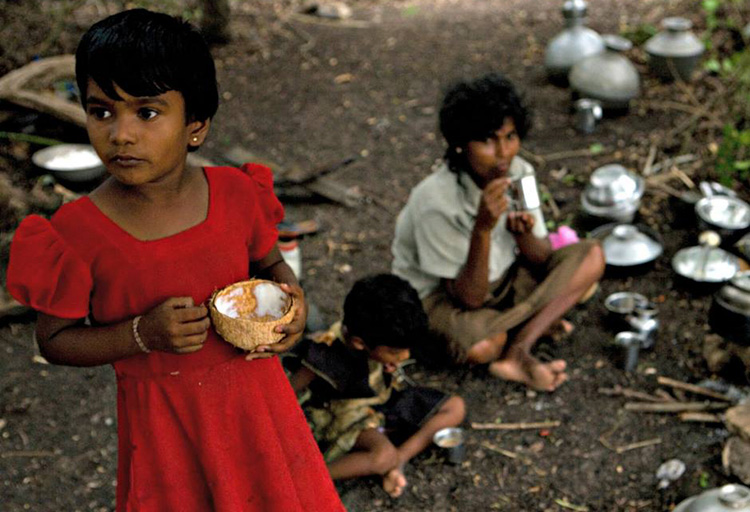
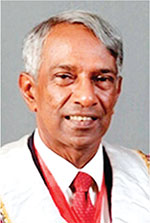 by Dr B.J.C.Perera
by Dr B.J.C.Perera
MBBS(Cey), DCH(Cey), DCH(Eng), MD(Paed), MRCP(UK), FRCP(Edin),
FRCP(Lon), FRCPCH(UK), FSLCPaed, FCCP, Hony FRCPCH(UK), Hony. FCGP(SL)
Specialist Consultant Paediatrician and Honorary Senior Fellow,
Postgraduate Institute of Medicine, University of Colombo, Sri Lanka.
Joint Editor, Sri Lanka Journal of Child Health
In an age of unprecedented global development, technological advancements, universal connectivity, and improvements in living standards in many areas of the world, it is a very dark irony that child food poverty remains a pressing issue. UNICEF defines child food poverty as children’s inability to access and consume a nutritious and diverse diet in early childhood. Despite the planet Earth’s undisputed capacity to produce enough food to nourish everyone, millions of children still go hungry each day. We desperately need to explore the multifaceted deleterious effects of child food poverty, on physical health, cognitive development, emotional well-being, and societal impacts and then try to formulate a road map to alleviate its deleterious effects.
Every day, right across the world, millions of parents and families are struggling to provide nutritious and diverse foods that young children desperately need to reach their full potential. Growing inequities, conflict, and climate crises, combined with rising food prices, the overabundance of unhealthy foods, harmful food marketing strategies and poor child-feeding practices, are condemning millions of children to child food poverty.
In a communique dated 06th June 2024, UNICEF reports that globally, 1 in 4 children; approximately 181 million under the age of five, live in severe child food poverty, defined as consuming at most, two of eight food groups in early childhood. These children are up to 50 per cent more likely to suffer from life-threatening malnutrition. Child Food Poverty: Nutrition Deprivation in Early Childhood – the third issue of UNICEF’s flagship Child Nutrition Report – highlights that millions of young children are unable to access and consume the nutritious and diverse diets that are essential for their growth and development in early childhood and beyond.
It is highlighted in the report that four out of five children experiencing severe child food poverty are fed only breastmilk or just some other milk and/or a starchy staple, such as maize, rice or wheat. Less than 10 per cent of these children are fed fruits and vegetables and less than 5 per cent are fed nutrient-dense foods such as eggs, fish, poultry, or meat. These are horrendous statistics that should pull at the heartstrings of the discerning populace of this world.
The report also identifies the drivers of child food poverty. Strikingly, though 46 per cent of all cases of severe child food poverty are among poor households where income poverty is likely to be a major driver, 54 per cent live in relatively wealthier households, among whom poor food environments and feeding practices are the main drivers of food poverty in early childhood.
One of the most immediate and visible effects of child food poverty is its detrimental impact on physical health. Malnutrition, which can result from both insufficient calorie intake and lack of essential nutrients, is a prevalent consequence. Chronic undernourishment during formative years leads to stunted growth, weakened immune systems, and increased susceptibility to infections and diseases. Children who do not receive adequate nutrition are more likely to suffer from conditions such as anaemia, rickets, and developmental delays.
Moreover, the lack of proper nutrition can have long-term health consequences. Malnourished children are at a higher risk of developing chronic illnesses such as heart disease, diabetes, and obesity later in life. The paradox of child food poverty is that it can lead to both undernutrition and overnutrition, with children in food-insecure households often consuming calorie-dense but nutrient-poor foods due to economic constraints. This dietary pattern increases the risk of obesity, creating a vicious cycle of poor health outcomes.
The impacts of child food poverty extend beyond physical health, severely affecting cognitive development and educational attainment. Adequate nutrition is crucial for brain development, particularly in the early years of life. Malnutrition can impair cognitive functions such as attention, memory, and problem-solving skills. Studies have consistently shown that malnourished children perform worse academically compared to their well-nourished peers. Inadequate nutrition during early childhood can lead to reduced school readiness and lower IQ scores. These children often struggle to concentrate in school, miss more days due to illness, and have lower overall academic performance. This educational disadvantage perpetuates the cycle of poverty, as lower educational attainment reduces future employment opportunities and earning potential.
The emotional and psychological effects of child food poverty are profound and are often overlooked. Food insecurity creates a constant state of stress and anxiety for both children and their families. The uncertainty of not knowing when or where the next meal will come from can lead to feelings of helplessness and despair. Children in food-insecure households are more likely to experience behavioural problems, including hyperactivity, aggression, and withdrawal. The stigma associated with poverty and hunger can further exacerbate these emotional challenges. Children who experience food poverty may feel shame and embarrassment, leading to social isolation and reduced self-esteem. This psychological toll can have lasting effects, contributing to mental health issues such as depression and anxiety in adolescence and adulthood.
Child food poverty also perpetuates cycles of poverty and inequality. Children who grow up in food-insecure households are more likely to remain in poverty as adults, continuing the intergenerational transmission of disadvantage. This cycle of poverty exacerbates social disparities, contributing to increased crime rates, reduced social cohesion, and greater reliance on social welfare programmes. The repercussions of child food poverty ripple through society, creating economic and social challenges that affect everyone. The healthcare costs associated with treating malnutrition-related illnesses and chronic diseases are substantial. Additionally, the educational deficits linked to child food poverty result in a less skilled workforce, which hampers economic growth and productivity.
Addressing child food poverty requires a multi-faceted approach that tackles both immediate needs and underlying causes. Policy interventions are crucial in ensuring that all children have access to adequate nutrition. This can include expanding social safety nets, such as food assistance programmes and school meal initiatives, as well as targeted manoeuvres to reach more vulnerable families. Ensuring that these programmes are adequately funded and effectively implemented is essential for their success.
In addition to direct food assistance, broader economic and social policies are needed to address the root causes of poverty. This includes efforts to increase household incomes through living wage policies, job training programs, and economic development initiatives. Supporting families with affordable childcare, healthcare, and housing can also alleviate some of the financial pressures that contribute to food insecurity.
Community-based initiatives play a vital role in combating child food poverty. Local food banks, community gardens, and nutrition education programmes can help provide immediate relief and promote long-term food security. Collaborative efforts between government, non-profits, and the private sector are necessary to create sustainable solutions.
Child food poverty is a profound and inescapable issue with far-reaching consequences. Its deleterious effects on physical health, cognitive development, emotional well-being, and societal stability underscore the urgent need for comprehensive action. As we strive for a more equitable and just world, addressing child food poverty must be a priority. By ensuring that all children have access to adequate nutrition, we can lay the foundation for a healthier, more prosperous future for individuals and society as a whole. The fight against child food poverty is not just a moral imperative but an investment in our collective future. Healthy, well-nourished children are more likely to grow into productive, contributing members of society. The benefits of addressing this issue extend beyond individual well-being, enhancing economic stability and social harmony. It is incumbent upon us all to recognize and act upon the understanding that every child deserves the right to adequate nutrition and the opportunity to thrive.
Despite all of these existent challenges, it is very definitely possible to end child food poverty. The world needs targeted interventions to transform food, health, and social protection systems, and also take steps to strengthen data systems to track progress in reducing child food poverty. All these manoeuvres must comprise a concerted effort towards making nutritious and diverse diets accessible and affordable to all. We need to call for child food poverty reduction to be recognized as a metric of success towards achieving global and national nutrition and development goals.
Material from UNICEF reports and AI assistance are acknowledged.
Opinion
Do opinion polls matter?
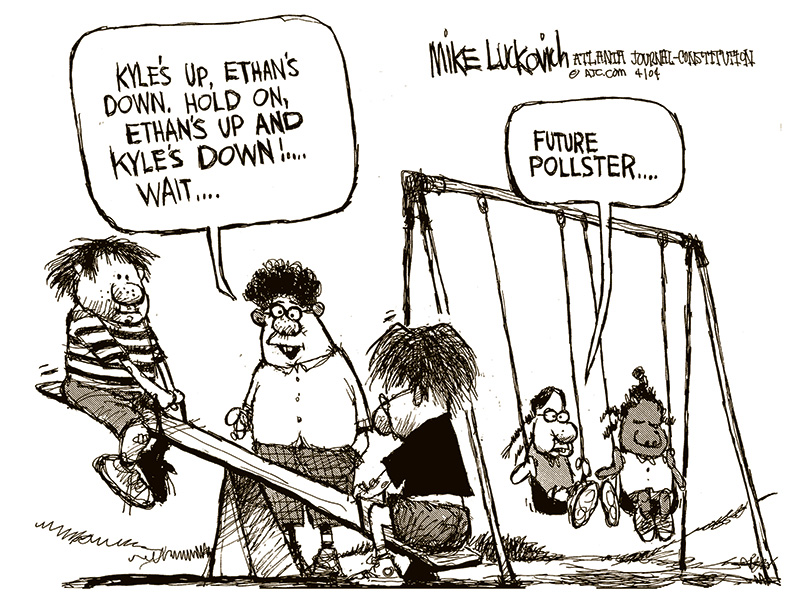
By Dr Upul Wijayawardhana
The colossal failure of not a single opinion poll predicting accurately the result of the Indian parliamentary election, the greatest exercise in democracy in the world, raises the question whether the importance of opinion polls is vastly exaggerated. During elections two types of opinion polls are conducted; one based on intentions to vote, published during or before the campaign, often being not very accurate as these are subject to many variables but exit polls, done after the voting where a sample tally of how the voters actually voted, are mostly accurate. However, of the 15 exit polls published soon after all the votes were cast in the massive Indian election, 13 vastly overpredicted the number of seats Modi’s BJP led coalition NDA would obtain, some giving a figure as high as 400, the number Modi claimed he is aiming for. The other two polls grossly underestimated predicting a hung parliament. The actual result is that NDA passed the threshold of 272 comfortably, there being no landslide. BJP by itself was not able to cross the threshold, a significant setback for an overconfident Mody! Whether this would result in less excesses on the part of Modi, like Muslim-bashing, remains to be seen. Anyway, the statement issued by BJP that they would be investigating the reasons for failure rather than blaming the process speaks very highly of the maturity of the democratic process in India.
I was intrigued by this failure of opinion polls as this differs dramatically from opinion polls in the UK. I never failed to watch ‘Election night specials’ on BBC; as the Big Ben strikes ‘ten’ (In the UK polls close at 10pm} the anchor comes out with “Exit polls predict that …” and the actual outcome is often almost as predicted. However, many a time opinion polls conducted during the campaign have got the predictions wrong. There are many explanations for this.
An opinion poll is defined as a research survey of public opinion from a particular sample, the origin of which can be traced back to the 1824 US presidential election, when two local newspapers in North Carolina and Delaware predicted the victory of Andrew Jackson but the sample was local. First national survey was done in 1916 by the magazine, Literary Digest, partly for circulation-raising, by mailing millions of postcards and counting the returns. Of course, this was not very scientific though it accurately predicted the election of Woodrow Wilson.
Since then, opinion polls have grown in extent and complexity with scientific methodology improving the outcome of predictions not only in elections but also in market research. As a result, some of these organisations have become big businesses. For instance, YouGov, an internet-based organisation co-founded by the Iraqi-born British politician Nadim Zahawi, based in London had a revenue of 258 million GBP in 2023.
In Sri Lanka, opinion polls seem to be conducted by only one organisation which, by itself, is a disadvantage, as pooled data from surveys conducted by many are more likely to reflect the true situation. Irrespective of the degree of accuracy, politicians seem to be dependent on the available data which lend explanations to the behaviour of some.
The Institute for Health Policy’s (IHP) Sri Lanka Opinion Tracker Survey has been tracking the voting intentions for the likely candidates for the Presidential election. At one stage the NPP/JVP leader AKD was getting a figure over 50%. This together with some degree of international acceptance made the JVP behave as if they are already in power, leading to some incidents where their true colour was showing.
The comments made by a prominent member of the JVP who claimed that the JVP killed only the riff-raff, raised many questions, in addition to being a total insult to many innocents killed by them including my uncle. Do they have the authority to do so? Do extra-judicial killings continue to be JVP policy? Do they consider anyone who disagrees with them riff-raff? Will they kill them simply because they do not comply like one of my admired teachers, Dr Gladys Jayawardena who was considered riff-raff because she, as the Chairman of the State Pharmaceutical Corporation, arranged to buy drugs cheaper from India? Is it not the height of hypocrisy that AKD is now boasting of his ties to India?
Another big-wig comes with the grand idea of devolving law and order to village level. As stated very strongly, in the editorial “Pledges and reality” (The Island, 20 May) is this what they intend to do: Have JVP kangaroo-courts!
Perhaps, as a result of these incidents AKD’s ratings has dropped to 39%, according to the IHP survey done in April, and Sajith Premadasa’s ratings have increased gradually to match that. Whilst they are level pegging Ranil is far behind at 13%. Is this the reason why Ranil is getting his acolytes to propagate the idea that the best for the country is to extend his tenure by a referendum? He forced the postponement of Local Governments elections by refusing to release funds but he cannot do so for the presidential election for constitutional reasons. He is now looking for loopholes. Has he considered the distinct possibility that the referendum to extend the life of the presidency and the parliament if lost, would double the expenditure?
Unfortunately, this has been an exercise in futility and it would not be surprising if the next survey shows Ranil’s chances dropping even further! Perhaps, the best option available to Ranil is to retire gracefully, taking credit for steadying the economy and saving the country from an anarchic invasion of the parliament, rather than to leave politics in disgrace by coming third in the presidential election. Unless, of course, he is convinced that opinion polls do not matter and what matters is the ballots in the box!
Opinion
Thoughtfulness or mindfulness?

By Prof. Kirthi Tennakone
ktenna@yahoo.co.uk
Thoughtfulness is the quality of being conscious of issues that arise and considering action while seeking explanations. It facilitates finding solutions to problems and judging experiences.
Almost all human accomplishments are consequences of thoughtfulness.
Can you perform day-to-day work efficiently and effectively without being thoughtful? Obviously, no. Are there any major advancements attained without thought and contemplation? Not a single example!
Science and technology, art, music and literary compositions and religion stand conspicuously as products of thought.
Thought could have sinister motives and the only way to eliminate them is through thought itself. Thought could distinguish right from wrong.
Empathy, love, amusement, and expression of sorrow are reflections of thought.
Thought relieves worries by understanding or taking decisive action.
Despite the universal virtue of thoughtfulness, some advocate an idea termed mindfulness, claiming the benefits of nurturing this quality to shape mental wellbeing. The concept is defined as focusing attention to the present moment without judgment. A way of forgetting the worries and calming the mind – a form of meditation. A definition coined in the West to decouple the concept from religion. The attitude could have a temporary advantage as a method of softening negative feelings such as sorrow and anger. However, no man or woman can afford to be non-judgmental all the time. It is incompatible with indispensable thoughtfulness! What is the advantage of diverting attention to one thing without discernment during a few tens of minute’s meditation? The instructors of mindfulness meditation tell you to focus attention on trivial things. Whereas in thoughtfulness, you concentrate the mind on challenging issues. Sometimes arriving at groundbreaking scientific discoveries, solution of mathematical problems or the creation of masterpieces in engineering, art, or literature.
The concept of meditation and mindfulness originated in ancient India around 1000 BCE. Vedic ascetics believed the practice would lead to supernatural powers enabling disclosure of the truth. Failing to meet the said aspiration, notwithstanding so many stories in scripture, is discernable. Otherwise, the world would have been awakened to advancement by ancient Indians before the Greeks. The latter culture emphasized thoughtfulness!
In India, Buddha was the first to deviate from the Vedic philosophy. His teachers, Alara Kalama and Uddaka Ramaputra, were adherents of meditation. Unconvinced of their approach, Buddha concluded a thoughtful analysis of the actualities of life should be the path to realisation. However, in an environment dominated by Vedic tradition, meditation residually persisted when Buddha’s teachings transformed into a religion.
In the early 1970s, a few in the West picked up meditation and mindfulness. We Easterners, who criticize Western ideas all the time, got exalted after seeing something Eastern accepted in the Western circles. Thereafter, Easterners took up the subject more seriously, in the spirit of its definition in the West.
Today, mindfulness has become a marketable commodity – a thriving business spreading worldwide, fueled largely by advertising. There are practice centres, lessons onsite and online, and apps for purchase. Articles written by gurus of the field appear on the web.
What attracts people to mindfulness programmes? Many assume them being stressed and depressed needs to improve their mental capacity. In most instances, these are minor complaints and for understandable reasons, they do not seek mainstream medical interventions but go for exaggeratedly advertised alternatives. Mainstream medical treatments are based on rigorous science and spell out both the pros and cons of the procedure, avoiding overstatement. Whereas the alternative sector makes unsubstantiated claims about the efficacy and effectiveness of the treatment.
Advocates of mindfulness claim the benefits of their prescriptions have been proven scientifically. There are reports (mostly in open-access journals which charge a fee for publication) indicating that authors have found positive aspects of mindfulness or identified reasons correlating the efficacy of such activities. However, they rarely meet standards normally required for unequivocal acceptance. The gold standard of scientific scrutiny is the statistically significant reproducibility of claims.
If a mindfulness guru claims his prescription of meditation cures hypertension, he must record the blood pressure of participants before and after completion of the activity and show the blood pressure of a large percentage has stably dropped and repeat the experiment with different clients. He must also conduct sessions where he adopts another prescription (a placebo) under the same conditions and compares the results. This is not enough, he must request someone else to conduct sessions following his prescription, to rule out the influence of the personality of the instructor.
The laity unaware of the above rigid requirements, accede to purported claims of mindfulness proponents.
A few years ago, an article published and widely cited stated that the practice of mindfulness increases the gray matter density of the brain. A more recent study found there is no such correlation. Popular expositions on the subject do not refer to the latter report. Most mindfulness research published seems to have been conducted intending to prove the benefits of the practice. The hard science demands doing the opposite as well-experiments carried out intending to disprove the claims. You need to be skeptical until things are firmly established.
Despite many efforts diverted to disprove Einstein’s General Theory of Relativity, no contradictions have been found in vain to date, strengthening the validity of the theory. Regarding mindfulness, as it stands, benefits can neither be proved nor disproved, to the gold standard of scientific scrutiny.
Some schools in foreign lands have accommodated mindfulness training programs hoping to develop the mental facility of students and Sri Lanka plans to follow. However, studies also reveal these exercises are ineffective or do more harm than good. Have we investigated this issue before imitation?
Should we force our children to focus attention on one single goal without judgment, even for a moment?
Why not allow young minds to roam wild in their deepest imagination and build castles in the air and encourage them to turn these fantasies into realities by nurturing their thoughtfulness?
Be more thoughtful than mindful?


